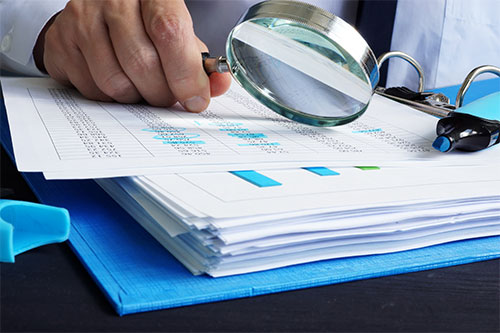Frequently Misconstrued Deductions
When preparing and filing tax returns, there are a few categories of tax deductions that are frequently misconstrued by business taxpayers. This can result in an overpayment or an underpayment of taxes. We encourage you to work with a qualified accountant as your tax preparer to make sure that these items are calculated correctly, but please remember that as the taxpayer, you need to understand the key categories of deductions enough to properly plan for and provide documentation for tax preparation.
We will discuss a few key tax deductions that are commonly confused and improperly reported.
- Travel Expenses vs. Entertainment Expenses
The first area of confusion is what we will refer to as Travel Expenses vs. Entertainment expenses. Current rules allow that if you travel for business and meet the requirements of business travel, that your meals while traveling are 100% tax deductible. You must be traveling outside your local tax home, and the trip must last for longer than an average business day.
This travel expense is a different deduction than Entertainment expenses. If you meet with clients or business associates and buy their meal, this is considered an entertainment expense, and is deductible at 50%. People often confuse this expense with the travel expense.
An interesting possibility arises if both the parties in a business meeting are traveling. If each party agreed to pay for their own meal, then it could be classified as a 100% deductible expense for each party. This could create savings for all of the businesspeople involved in the business meeting while traveling. Keep in mind that you do need to document the meeting, who was present, topics discussed, and the reason for the meeting in order to qualify for either travel or entertainment expenses.
- Education Expenses vs. Startup Expenses
Business owners usually question this when they enroll in a program to learn how to start, expand, or diversify their business. They would like to claim the expenses for this as education expenses. The only type of education expenses that are allowed for deduction are continuing education expenses that allow you to do a better job with what you are already doing. The IRS will not allow anything that they consider opening a new branch or segment of your business. An example would be the doctor who decided to study hematology, which is a specialty in the medical field. The IRS argued successfully in court that even though he was a doctor, this would allow him to offer a completely different set of services, and consequently, was not continuing education.
You can deduct these types of expenses as startup expenses if you also start a business enterprise by forming an LLC or other business entity within a short time before or after paying for the educational expenses. You probably will not be able to claim all the expenses in one calendar year, there are limitations that your tax accountant can assist you in identifying and applying, but these expense overages can be rolled over into subsequent years. The critical thing is that you need to plan on setting up an entity within a reasonable time, or you have nothing against which to claim your “startup” expenses.
- Utilities/Home Office, Automobile, and Travel Expenses
We have lumped these all together because the same principle applies to all of them. Home office does not comprise your entire home, only a percentage of it. Business automobile expenses may not encompass the entire use of your automobile, only a percentage of it. Travel expenses may not comprise all of your trip, there may be some vacation days as well. The operative phrase here is “percentage of.” You can only claim the business portion or percentage of these items as a tax-deductible business expense.
In all of the above examples, claiming more than what is allowed is considered as cheating the IRS. We can claim any legitimate tax deduction on our return, but returns are carefully reviewed, and if you are caught cheating, expect consequences. We encourage you to work closely with your tax accountant to plan your tax year, and to determine what documentation is needed to support the deductions you will claim. It is easy to win an argument with the IRS when you have made legitimate claims and have written documentation to back them up. Take a little care as you go along, have good professional tax accountants to work with, and tax filing will not be a worrisome experience, and you will probably get to keep more of your money than you even anticipated.
________________________________________
ihttps://www.freshbooks.com/hub/expenses/tax-deductions-small-business?fb_dnt=1

